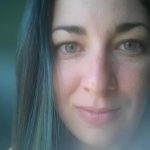by Jenn LaRue
Those of us who TA for the Writing Intensive Program come from diverse schools and departments within the University of Georgia, but we all have one thing in common: an appreciation for the writing process. I suspect most of us in the program have always had an aptitude for expressing ourselves through the written word; regardless of our fields, we are writers. As WIP TAs, though, we look at writing from both sides; bringing to mind Joni Mitchell’s (1969) “Both Sides Now.” I feel a bit like Mitchell: “I’ve looked at clouds from both sides now / From up and down, and still somehow / It’s cloud illusions I recall / I really don’t know clouds at all.” Substitute writing for clouds, and this becomes a good expression of my feelings about writing. Some might find that discouraging, but I think it can be exciting.

Teaching assistants for writing intensive courses often find ourselves coaching students on the very things we are working on. For example, as I have been taking students through the peer-review and overall revision process, I myself have been going through peer review for an article for publication. Being able to empathize with my students over some of the more awkward or uncomfortable parts of having someone look over our work has been helpful. For instance, in my recent article there was one sentence in particular that I absolutely loved; I had even incorporated a word I had just learned (autochthonous, if you’re curious). Imagine my embarrassment when the editor informed me I had used the word incorrectly. I often have students overusing the thesaurus function in their writing; now, however, I’m much more sympathetic when I address this. I become more mindful of the words I use when suggesting revisions.
regardless of our fields, we are writers
I am also able to share with students my own recent experience of watching my writing improve over multiple drafts. Because I am new to the institution, I am often learning certain procedures as I am teaching them to my students. This became clear when I led one of my undergraduate music classes in a research workshop. Most of the students in this course are not music majors, so I was helping them become familiar with using the resources available in the library that are specific to music, as well as some general tips on maneuvering the UGA Library website. The databases and search tips I shared with the class were the very same ones I had learned only a week or two before.
Negotiating my stance between teacher and learner makes me feel unsteady at times, but that instability keeps me thoughtful, in addition to improving both my writing and my teaching.The intensive peer-review procedure I have been in the midst of has also further validated WIP principles for me. The article I am preparing is a revision of my Master’s thesis—material one would hope I would be very familiar with. Even still, I have found that the process of writing and rewriting about my research has helped me see the subject in a new light and understand it in ways I hadn’t before. My reviewers challenged me to look at the subject through new lenses, and writing about it in these new contexts brought new layers of insight. This is something I try to convey to my students when we talk about revision in conferences and in the classroom. I want them to see the process as more than editing out errors, but as a way to help cement their understanding of the subject and hone their skills as writers.

“From Both Sides Now” is sometimes heard as a lament—things are not what we thought they were. But Mitchell’s line in the third stanza is telling: “Well something’s lost, but something’s gained. . . ” and this is how I look at writing now. Yes, my previous thoughts on the writing process—my own and my students’—has shifted, but this is what I find exciting. Like revising a paper, breaking down my previously held ideas about writing and teaching is both loss and gain. I have lost old ideas and gained new ones. Being comfortable with that dance between what is discarded and what is added is part of what it takes to see writing as process, not product, and learning as constant, not static.
Reference:
Mitchell, Joni. 1969. “From Both Sides Now.” On Clouds. Sony/ATV Music Publishing, Crazy Crow Music/Siquomb Music Publishing.
 Jenn LaRue is a first year PhD student in Ethnomusicology at UGA. She received her M.A. in Ethnomusicology from Liberty University in Virginia, where her research focused on a traditional Kenyan flute. A native of Canada, she enjoys watching hockey and baseball, and enjoys it even more so when Toronto teams are winning.
Jenn LaRue is a first year PhD student in Ethnomusicology at UGA. She received her M.A. in Ethnomusicology from Liberty University in Virginia, where her research focused on a traditional Kenyan flute. A native of Canada, she enjoys watching hockey and baseball, and enjoys it even more so when Toronto teams are winning.